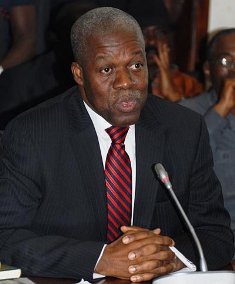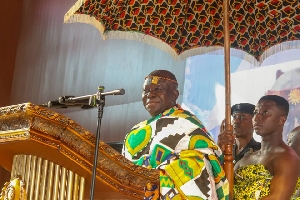Business News of Wednesday, 30 July 2014
Source: GNA
Veep calls for collective strategy to boost export

Vice-President Kwesi Amissah-Arthur has called for a collective strategy to raise revenues from both traditional and non-traditional exports, adopt a radical import substitution agenda and implement a comprehensive structural transformation plan.
Addressing a two-day National Stakeholders’ Dialogue on Boosting Ghana’s Foreign Exchange Resources, Vice-President Amissah-Arthur said the economy had become vulnerable to several adverse shocks in the international markets for both export and import commodities.
He said the declining level of export revenue due to unstable and consistently falling prices of cocoa and gold on the international commodities market had affected the economy negatively.
Besides, the increasing demand for foreign goods and services has escalated Ghana’s import bill, causing foreign inflows from exports to plummet. Export of traditional commodities accounted for 70 per cent of Ghana’s foreign exchange earnings.
Mr Amissah-Arthur said the dialogue would enable facts and figures on foreign exchange inflows, export revenue, import outflows and allied expenditure, production levels and foreign exchange market shares to surface.
Dr Kofi Henry Wampah, Governor of the Bank of Ghana, emphasised the importance of the dialogue, saying it was timely in the face of the prevailing economic conditions characterised by currency depreciation. He said the way the economy is structured makes it vulnerable to external market conditions.
Dr Wampah said for instance, when price of commodities, such as cocoa and gold decline, the impact is felt through low export revenues and shrinking foreign exchange reserves.
He explained that cocoa, gold and oil constituted 78.3 per cent of Ghana’s total export earnings in 2013, consequently the decline in gold and cocoa prices resulted in $1.6 billion loss of export revenues. Dr Wampah said that countries that were dependent on raw material imports are vulnerable to global market dictates.
He said the service sector in 2013 contributed 49.5 per cent to the country’s revenue whilst the contribution of industry was 28.6 per cent. Dr Wampah bemoaned the meagre 5.8 per cent contribution, the manufacturing sector made to the economy.
“As we move to broaden our development process, growth must be driven by a strong manufacturing base which in turn would spur the much needed structural transformation and job creation that is required," he said.
There is the need to institute appropriate policies and critical structural reforms, focus on increased value addition in the primary commodity sector and also diversify into higher productivity sectors” Dr Wampah added.










